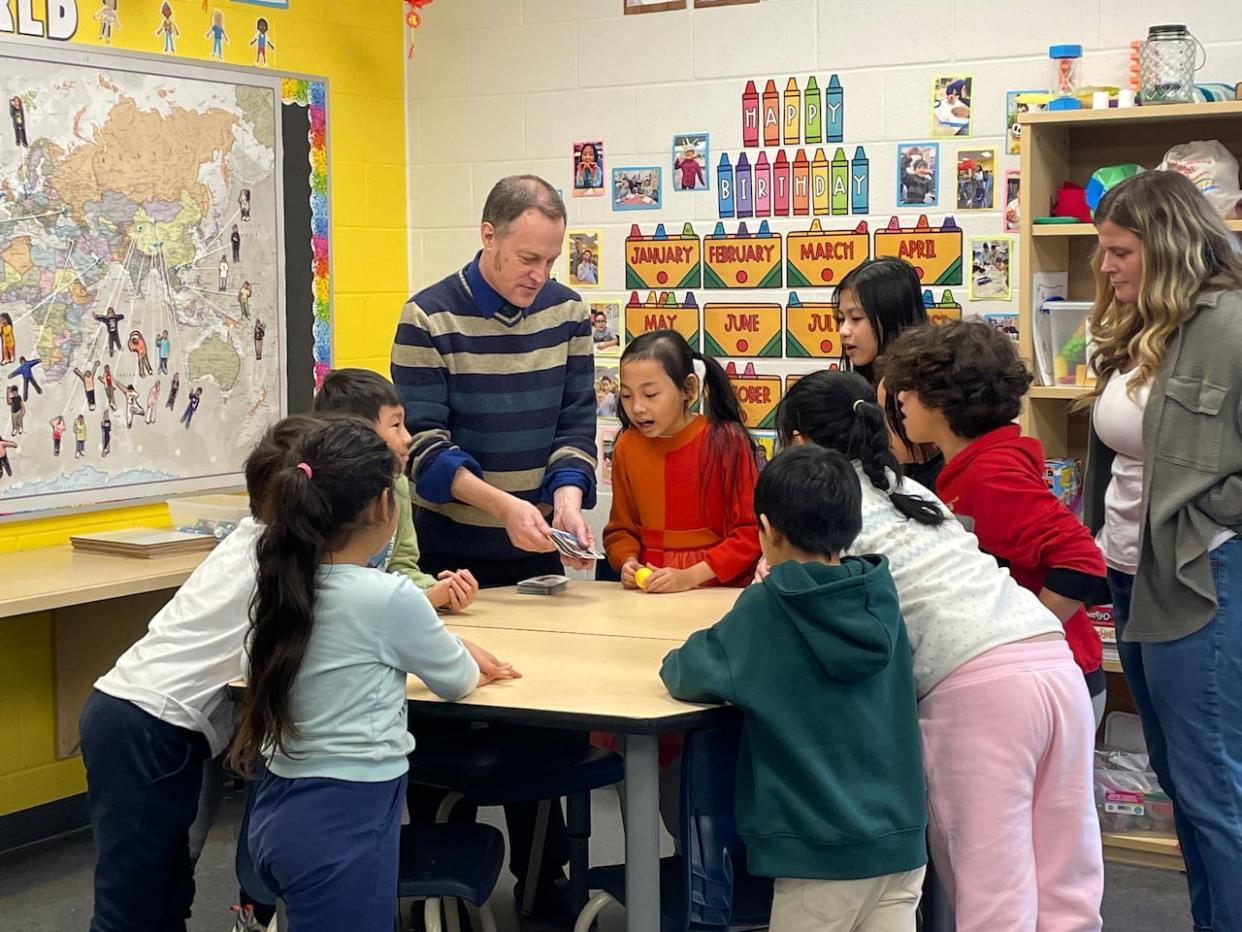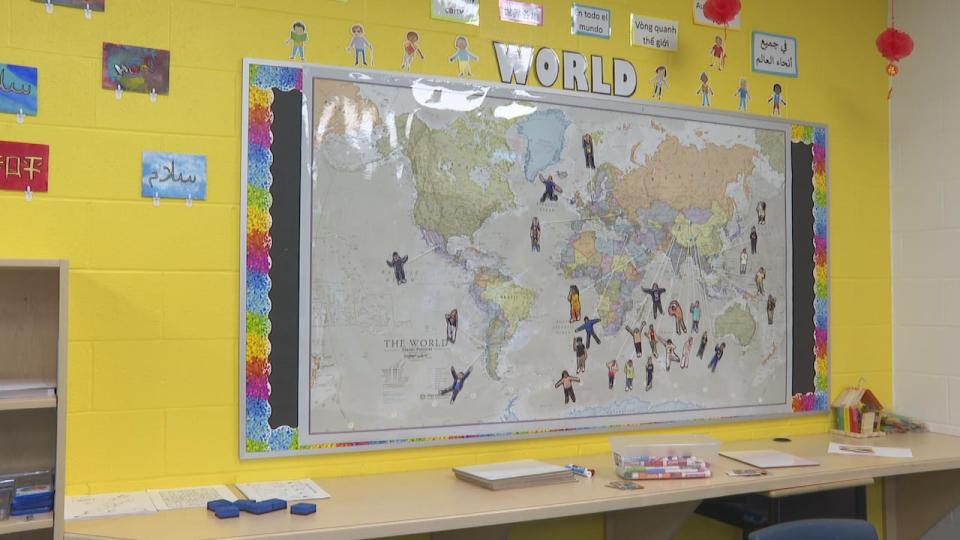The ABCs of recess and fire drills: Students from around the world learn English, and the ropes

It's difficult to paint a picture of what this classroom is like at West Royalty Elementary in Charlottetown. Seeing words in languages from all over the world taped to the walls might give you an idea.
"If you were to sum up this class, [it would be] 'Welcome to Canada — it's going to be OK,'" said Nick Sheehan, a teacher at the school.
"I think that this space is really important."
Sheehan's class has students from literally around the globe. There are kids from China, Syria, Chile and Germany, just to name a few.

This map shows the home countries of all the students in the class at West Royalty Elementary in Charlottetown. 'The ease at which children learn to communicate is just astounding,' says Janet Perry-Payne, the PSB's director of EAL/FAL programs and services. (Sheehan Desjardins/ CBC News)
They are all part of the new School Transition EAL (English as an Additional Language) Pilot Program, or STEPP. It teaches students who recently moved to the country the basics of school before sending them off to join their actual class. That could mean a range of things, including not just rudimentary English but how recess and lunchtime work and why we do fire drills.
"The goal is to help those new language learners transition into the school, into the class, and ultimately into the entire school community," said Janet Perry-Payne, the P.E.I. Public Schools Branch's director of programs and services for students in the English or French as an additional language stream.
"It helps... the children and it helps the classroom teacher. Ultimately, everybody wins."
'Going incredibly well'
L.M. Montgomery Elementary School and Stonepark Intermediate School are offering the program as well.
"It's been going incredibly well. Very positive feedback from our students, our families, our educators," said P.E.I. Education Minister Natalie Jameson.

'They're hugely inspiring,' says Nick Sheehan, who teaches STEPP at West Royalty Elementary. 'All of them are willing to give their best effort and all of them want to get better quickly.' (Sheehan Desjardins/CBC News)
"I see it being really a foundation for something that we can roll out system-wide."
In the classroom CBC News visited on a recent Thursday, the energy was contagious. Nick Sheehan held up flashcards as his students raced to yell out words like "potato" or "cat" — with bursts of laughter always following closely behind.
What we're doing here is pushing them gently but firmly through that silence. — Teacher Nick Sheehan
"Some of these kids haven't been here terribly long, and they often can go silent... They won't really use English at all when they kind of first arrive in Canada," said Sheehan.
"What we're doing here is pushing them gently but firmly through that silence. Ideally, by the end of day one, I want the kids using English, feeling comfortable, feeling like 'I've got this, I can do this.'"
'A safe space'
On top of learning about Canadian customs and traditions, Sheehan said the students' own cultures are also celebrated in this room.
"I looked at my class and you know I was, 'OK, well, if we have a student from Chile, I'm going to look up and see if there's a Chilean craft or art we can do,'" he said.
"Almost every culture that comes into the classroom, we try to spotlight."

'I think our province could benefit wholeheartedly from this across the system,' says Education Minister Natalie Jameson. 'I really hope that we can learn and grow with it.' (Sheehan Desjardins/CBC News)
According to Sheehan, some students are enrolled in STEPP for only a couple of weeks. Others stay a little longer depending on their level of need and confidence.
"I think to me that's the most important [thing]," he said. They know how to ask their teacher, 'Can I use the washroom?' or 'I don't understand this; can you help me with this?'" he said.
"Sometimes, even after they've graduated, they'll come back and check in because they know that this room is a safe space and this room is a place where they can always ask for help."


